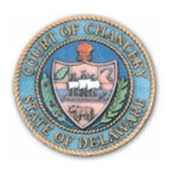 Everyone knows Brown v. Board of Education is a landmark case, but just how has it affected education and civil rights? Martha Minow explores that question in In Brown's Wake: Legacies of America's Educational Landmark (KF4155 .M56 2010 at Classified Stacks).
Everyone knows Brown v. Board of Education is a landmark case, but just how has it affected education and civil rights? Martha Minow explores that question in In Brown's Wake: Legacies of America's Educational Landmark (KF4155 .M56 2010 at Classified Stacks).Minow looks at a number of educational policies and how they affect communities and children: racial segregation and integration; separate schools for boys and girls; access to education for disabled children; education of immigrant children; school choice, charter schools, vouchers.
In her final chapter, Minow writes this summary:
The publisher's page is here.Inside the United States, Brown may turn out to have more influence on racial justice outside the context of schooling, more influence on schooling outside the context of racial integration, and more significance to law outside of both race and schooling. Brown's rejection of "separate but equal" schools spurred the end of segregation in retail stores, theaters, swimming pools, and employment, though often only after a struggle and legislative or litigated reforms. . . .
Brown's influence inside schools but outside of the context of race has profoundly altered the discussions and treatment of gender, disability, language, ethnicity, and national origin, with further changes in the way educational and life opportunities of students are affected by their sexual orientation, religion, economic class, or status as Native Hawai'ians or Native Americans.
Well beyond schooling, Brown and the efforts surrounding it have created the model for social and legal reforms in the United States -- deploying social science research, and social movement activism -- on behalf of girls and women, persons with disabilities, members of religious minorities, and advocates for economic justice, environmental protection and other issues.
. . . As in the United States, the case and the struggle behind it have served as an evocative reference point for advocates pursuing equal opportunity and social change in Northern Ireland, South Africa, India, and eastern Europe and even for initiatives addressing social hierarchy and exclusion without connection to race or education.





























